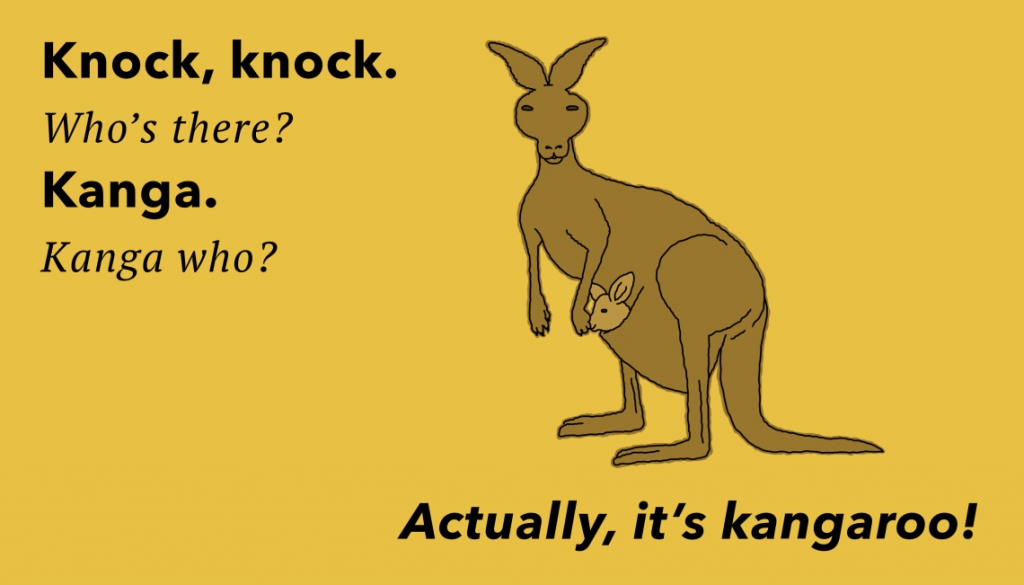

But who told the first knock-knock joke?īefore there were knock-knock jokes - as we know them - there were "Do You Know" jokes. So that, for better or worse, was Douty's initiation. Mickey Mouse who? Mickey Mouse's underwear." The first joke that the 43-year-old Virginia comic remembers telling - at age 4 or 5 - was this: "Knock knock.
Best knock knock joke ever series#
When Melissa Douty - a stand-up comic who competed in the 2015 World Series of Comedy last week - was interviewed by a reporter in Roanoke, Va., recently, she said her career began with a knock-knock joke.

Somehow - knock on wood - it has endured. In fact, in the heyday of the knock-knock's popularity, certain critics railed against it. With its repetitive set-up and wordplay punchline, the form has been invoked - and understood - by people of all ages and sensibilities.īut knock-knock jokes have not always been universally appreciated. The knock-knock joke has been a staple of American humor since the early 20th century. ‘What’s black and white and red all over, the best worst joke book in the world’ by Gyles Brandreth is published by Puffin Books Do you have any good (or bad) knock-knock jokes? Share them with us in the comments below.Joking like this used to be considered a sickness by some people. Happily, I am not alone in feeling this way.
Best knock knock joke ever tv#
So much of the humour that we are exposed to on TV these days is cynical and sarcastic, I reckon we need knock-knocks more than ever before. According to recent research from Oxford University and Aalto University in Finland, laughter triggers an endorphin release in the brain that promotes a sense of well-being and sharing bad jokes – groaning together – helps establish social bonds. What's your favourite knock knock joke? Let us know in the comments below. In a world where, increasingly, young people are sitting alone gazing into flickering screens, it is important to encourage them to look up and share a laugh – or a groan – with a friend. For a knock-knock joke to work, it has to be shared. The knock-knock joke is not just about honing young people’s linguistic skills: it’s also about communication. The more adept you are at using it, the more successful (and happier) you are going to be in life. Children who repeat knock-knock jokes and, better still, invent their own, are getting to grips with language by having fun with it. Needle who? Needle little help getting in the door. From Shakespeare to Oscar Wilde, our greatest wits have all been pun-lovers and the essence of the knock-knock joke is the pun in the pay-off. For me, the genius of the knock-knock joke is the wordplay involved. Rufus Who? Rufus the most important part of your house.īut never mind their heritage, I believe they have a useful role to play in the modern world. Their popularity in the United States is reckoned to date from a 1930s newspaper advertising campaign for a roofing contractor. The knock-knock joke as we know it has been around for at least a hundred years. Shakespeare made the phrase famous when he gave the line “Knock knock, who’s there?” to his drunken porter in Macbeth and he liked the line so much he used it as a running gag later in the same scene. Knock, knock! Who’s there? Boo! Boo who? Indeed. According to the research, 20 per cent of people under 30 have never even heard of knock-knock jokes and three-quarters of those that have think they are “old fashioned” and “not funny” any more. The knock-knock gag, it seems, has had its day. A new survey has revealed that my favourite form of childhood joke is on the way out. I am a devotee of knock-knock jokes and I am down in the dumps today. Alex who? Alex plain if you care to read on.


 0 kommentar(er)
0 kommentar(er)
